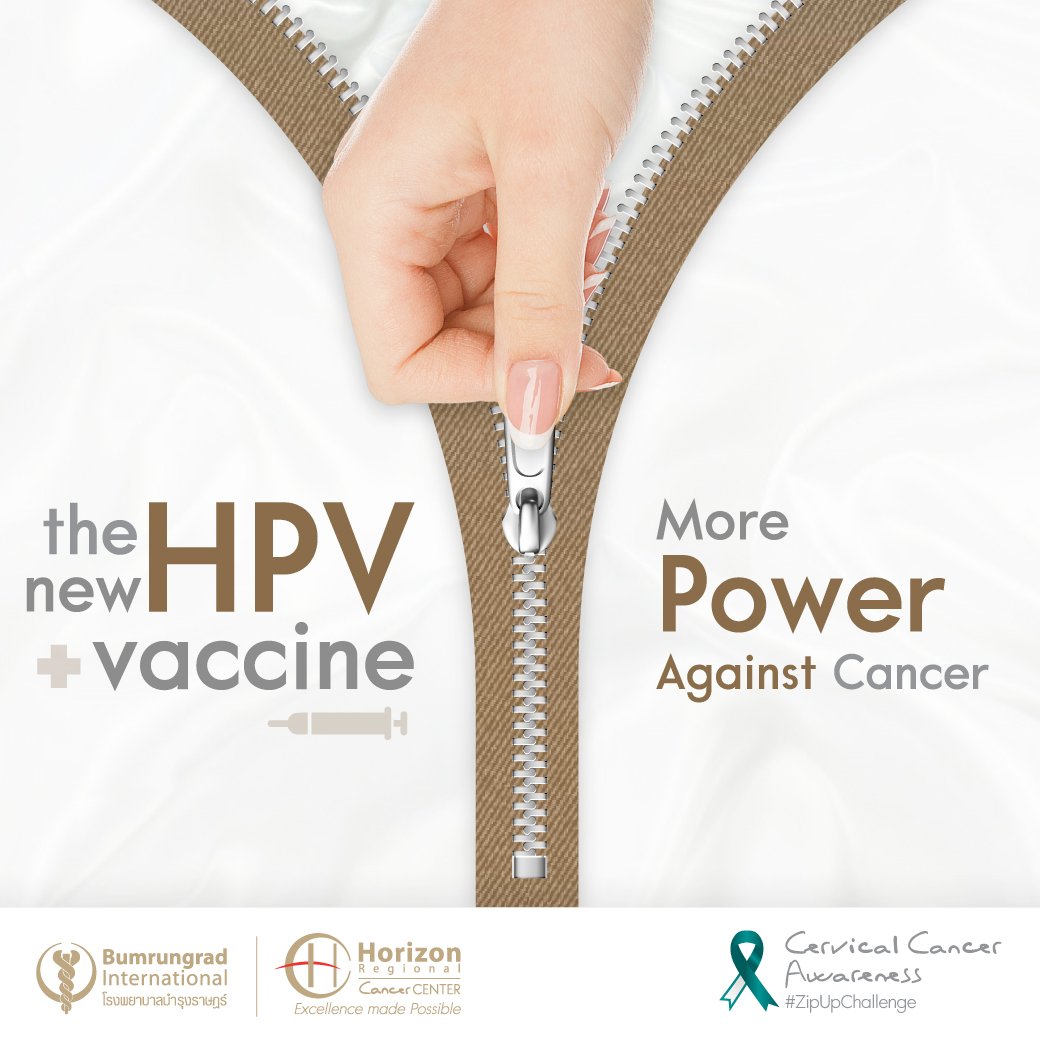
What is HPV?
There are over a hundred known types of human papillomavirus (HPV), with more than 40 of them are spread through direct sexual contact and able to cause illness in humans. HPV types 6 and 11 are known to cause genital warts, whereas types 16 and 18 are strongly linked to gynecologic (cervical, vulvar, and vaginal) and anal cancers.
There is currently no medication or treatment for HPV infection, but vaccines do exist for us to effectively guard against contracting HPV in the first place. At first, there are two types of HPV vaccines available in Thailand:
- The 2-valent HPV vaccine (protects against types 16 and 18)
- The 4-valent HPV vaccine (protects against types 6, 11, 16 and 18)
Since 2020, a new type of HPV vaccine that protects against nine types of HPV has become available in Thailand, increasing the level of protection as never seen before.
What is the Human Papillomavirus 9-valent Vaccine?
Developed from its 4-valent predecessor, the HPV 9-valent vaccine is prepared from virus-like particles. It protects against HPV types 6, 11, 16, 18, 31, 33, 45, 52, and 58, for both females and males between 9 and 45 years of age.
What can this vaccine protect against?
The 9-valent HPV vaccine can protect both females and males against the following:
| Females aged 9-45 years |
Males aged 9-45 years |
- Cervical, vulvar, vaginal, anal, oropharyngeal and other head and neck cancers (from HPV types 16, 18, 31, 33, 45, 52 and 58).
- Precancerous cervical, vulvar, vaginal and anal lesions (from HPV types 6, 11, 16, 18, 31, 33, 45, 52 and 58).
- Genital warts (from HPV types 6 and 11).
|
- Anal, oropharyngeal and other head and neck cancers (from HPV types 16, 18, 31, 33, 45, 52 and 58).
- Precancerous anal lesions (from HPV types 6, 11, 16, 18, 31, 33, 45, 52 and 58).
- Genital warts (from HPV types 6 and 11).
|
Who is this vaccine suitable for?
The 9-valent HPV vaccine is viable for both females and males aged between 9 and 45 years. The vaccine is most effective in the younger age group, before sexual activity has commenced and when the body produces more antibodies. Those who are already sexually active may also be vaccinated, but the vaccine might not be as effective. However, it is likely that someone previously infected with HPV will still get some residual benefit from the vaccine because it can protect you from other types of HPV that you have not been exposed to.
How is this vaccine given?
The 9-valent HPV vaccine is usually injected into the arm muscle (the deltoid region of the upper arm) or in the higher anterolateral area of the thigh. The number of shots you need will depend on your age as shown in the table below:
| Age |
No. of doses |
Schedule |
| 9-14 years* |
2** |
Dose 1: first shot
Dose 2: second shot given between 5 and 13 months after the first shot |
| |
3 |
Dose 1: first shot
Dose 2: second shot given 2 months after the first shot
Dose 3: third shot given 6 months after the first shot |
| 15-45 years |
3 |
Dose 1: first shot
Dose 2: second shot given 2 months after the first shot
Dose 3: third shot given 6 months after the first shot |
* The decision on number of shots is at the physician’s discretion.
** If the second shot is given earlier than 5 months after the first shot, you will need to get the third shot.
What are the possible side effects of this vaccine?
Generally, the 9-valent HPV vaccine does not have any severe side effects. Mild side effects such as pain, swelling, or redness at the injection site may occur. This might also be accompanied by headache, fever, nausea, dizziness, and fatigue. These side effects will only last a short while and will disappear without any need for medical attention.
Who should not get this vaccine?
The 9-valent HPV vaccine should not be given to people who have history of allergic reactions to any 9-valent or 4-valent HPV vaccines, or any of components of the vaccine, as well as people with severe yeast allergy.
The 9-valent HPV vaccine is also not recommended for pregnant women, although there is no evidence that the vaccine will affect a pregnancy or harm a baby. If you are pregnant after getting 1 or 2 shots of the HPV vaccine, the remaining shot(s) should be delayed until after pregnancy.
Can I get this vaccine if I have already received all three shots of the 2-valent or 4-valent vaccines?
Clinical studies have shown that it is safe to receive the 9-valent HPV vaccine after completing a 3-dose series of the 2-valent or 4-valent HPV vaccines. In any cases, the physician will make the final consideration as to whether further vaccination is necessary or advisable.
If you have any other questions or concerns, please do not hesitate to contact Drug Information Service, Bumrungrad International hospital (available 24 hours).
For more information please contact:
Last modify: September 05, 2024